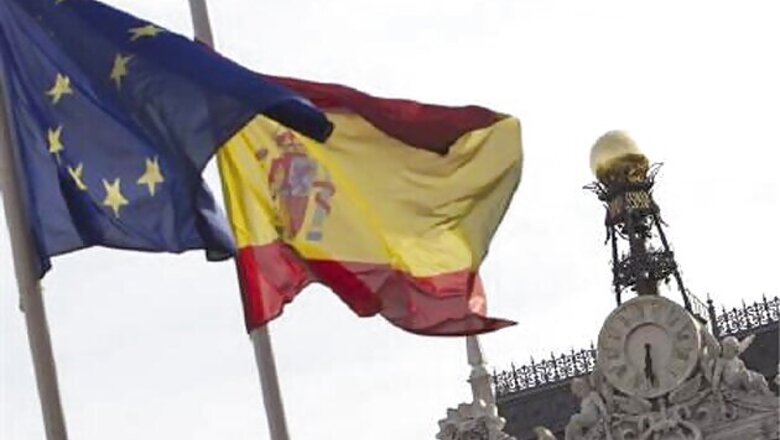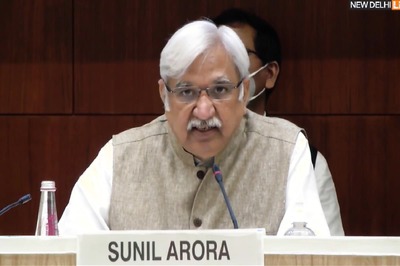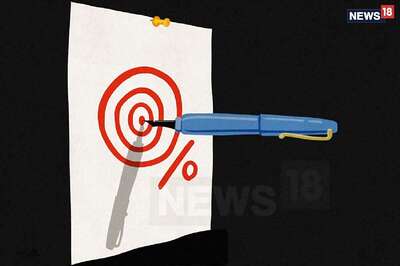
views
Madrid: Spain and Greece outlined plans on Thursday to cut spending and raise taxes to convince international lenders and financial markets they are on the right track to cut their deficits.
The measures outlined on Thursday highlight how Europe's struggling countries are battling public anger and flat-lining economies to push for more austerity, all with the aim of securing much-needed aid.
Throughout the three-year financial crisis in the 17 countries that use the euro, governments have had to impose harsh cuts and reforms to get a control of their debts and in the case of Greece, Portugal and Ireland, qualify for vital aid. The austerity measures have hit citizens with wage cuts and fewer services, and left their economies struggling through recessions as reduced government spending has undermined growth.
In some countries, the austerity measures have sparked violent protests but governments have pressed on with the cuts and reforms to get the eurozone financial crisis under control and to get help from other countries and organizations.
In Madrid, the Spanish government Thursday unveiled the country's most severe round of budget cuts in a move that many see as a precursor to seeking European Central Bank aid. Finance Minister Cristobal Montoro said Thursday the draft budget for 2013 would cut overall spending by (euro) 40 billion ($51 billion).
"This is a budget in times of crisis but one to help get out of the crisis," said deputy Prime Minister Soraya Saenz de Santamariatold a joint news conference with Montoro and Economy Minister Luis de Guindos.
Many think the measures are a precursor to Spain seeking European Central Bank help.
Recession-hit Spain has come under pressure to tap an ECB bond-buying program, designed to keep a lid on the country's borrowing costs. Throughout the summer, Spain has been hit by high interest rates on its bonds, raising speculation that the country might soon be forced to ask for an international bailout to help it manage its debts.
Spain is at the center of the eurozone crisis its (euro) 1.4 trillion ($1.8 trillion) economy is the fourth largest among the 17 countries that use the euro and any request for a full bailout would stretch the region's finances. The country is struggling in a recession to prop up its shaky banking sector burdened with toxic assets and support its heavily indebted regional governments. It has already introduced several packages of tax hikes, civil servant wage cuts and freezes in a bid to get out of the crisis.
To get help from the ECB, Spain must first ask for assistance from the other rest of the eurozone. So far, the government has been reluctant to ask for fear of the conditions the other countries will attach to its aid.
Analysts say the government, led by Prime Minister Mariano Rajoy, hopes Thursday's budget measures will be enough to stop the eurozone imposing further spending and deficit controls.
The country is battling to fulfill an EU commitment to reduce its deficit from 8.9 per cent last year to 6.3 per cent in 2012, 4.5 per cent next year and to 2.8 per cent by the end of 2014.
Economy Minister Luis de Guindos said the measures "go beyond" the steps European officials have recommended that Spain should take. He added that Spain was consulting with other countries in the bloc but has still not decided whether to ask for a bailout.




















Comments
0 comment